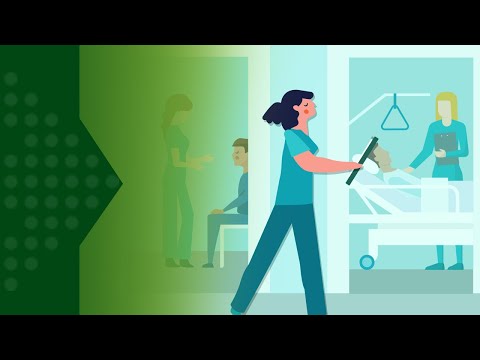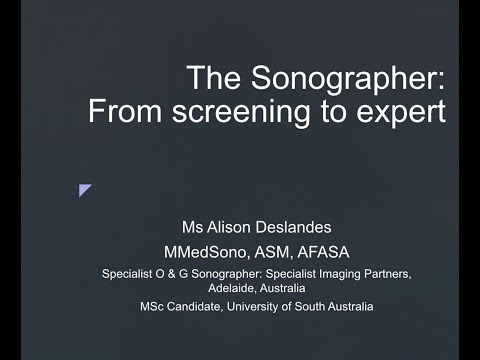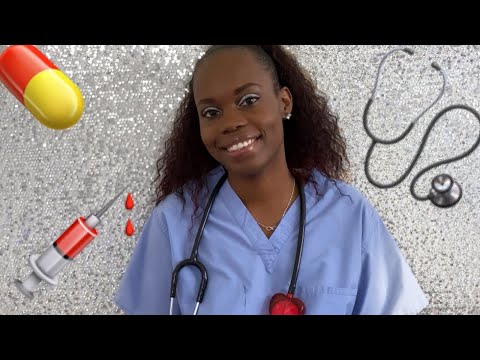The Top Skills You Need as a Medical Assistant
Contents [show]
If you’re thinking about becoming a medical assistant, you might be wondering what skills you need to succeed in this field. Here’s a rundown of the most important skills you’ll need to be a top medical assistant.
Checkout this video:
The top skills you need as a medical assistant
Being a medical assistant is a demanding job, and you will need to have a wide range of skills to be successful. Here are the top skills you need to excel in this career:
1. Communication: Medical assistants must be able to communicate effectively with patients, families, physicians, and other members of the healthcare team. They need to be able to understand and explain medical information in a clear and concise manner.
2. Organizational: Medical assistants must be able to organize their work area, manage their time efficiently, and keep accurate medical records They will often be responsible for scheduling appointments and coordinating care between different providers.
3. Clinical: Medical assistants need to have basic clinical skills such as taking vital signs and performing simple medical procedures such as administering injections or wound care. They also need to be able to assist with more complex procedures such as surgery or diagnostic testing.
4. Emotional: Medical assistants must be able to deal with the stress of working in a fast-paced environment and deal with patients who may be in pain or have other emotional needs. They need to be compassionate and understanding while still maintaining professionalism.
The medical assistant job description
Medical assistants are multi-skilled health professionals who support the work of physicians and other health care professionals. They perform both clerical and clinical tasks in physician’s offices, hospitals, clinics and other healthcare settings.
Medical assistants are often the first point of contact between a patient and a physician. They are responsible for greeting patients, scheduling appointments, taking medical histories and collecting insurance information. They also answer telephones, file Medical records and perform other office duties as needed.
In addition to administrative tasks, medical assistants also perform clinical duties such as taking medical histories, recording vital signs, preparing patients for examinations, administering medications and performing basic laboratory tests. They may also assist with minor surgical procedures, such as removing sutures and changing dressings.
The medical assistant salary
The median annual wage for medical assistants was $33,610 in May 2019. The median wage is the wage at which half the workers in an occupation earned more than that amount and half earned less. The lowest 10 percent earned less than $24,280, and the highest 10 percent earned more than $48,720.
The medical assistant education
Medical assistants are multi-skilled health professionals specifically trained to work in outpatient facilities such as medical offices and clinics. They perform both administrative and clinical duties. Their responsibilities might include answering phones, scheduling appointments, handling insurance forms and coding, taking medical histories and recording vital signs, preparing patients for examination, assisting the physician during the exam, giving injections and performing routine laboratory tests. Although they do not require a license in all states, most employers prefer to hire those who have completed an accredited program and are certified by a professional organization such as the American Association of Medical Assistants (AAMA).
Most accredited medical assistant programs last about one year and lead to a certificate or diploma. Some community colleges offer two-year associate degree programs. A few four-year colleges offer bachelor’s degree programs in medical assisting, but these are not as common. Admission requirements vary by program but usually include a high school diploma or equivalent, along with courses in biology and chemistry.
Programs typically include classroom instruction in anatomy, physiology, Medical Terminology pharmacology and law/ethics; and laboratory instruction in basic clinical skills such as measuring vital signs, administering injections and performing diagnostic tests. Clinical externships provide students with hands-on experience in outpatient settings such as physician’s offices, clinics or hospitals. Upon completion of an accredited program, graduates can sit for a credentialing exam to earn the Certified Medical Assistant (CMA) credential offered by the AAMA.
The medical assistant certification
The medical assistant certification is a voluntary credential that can be attained by passing an accredited medical assisting exam. The certification gives credibility to medical assistants and can often lead to increased job satisfaction and career opportunities. Although the certification is not required for all positions, it may be required by some employers.
The medical assistant training
As a medical assistant, you will be responsible for performing a variety of administrative and clinical tasks to support the work of physicians and other health professionals. Your duties will vary depending on the size and type of medical practice, but may include taking and recording patient medical histories, measuring vital signs, preparing patients for examination, assist with procedures, scheduling appointments, collecting and processing laboratory specimens and answering patient questions.
To be successful in this role, you will need to have excellent communication and interpersonal skills as well as strong organizational abilities. You will also need to be able to work well under pressure and handle confidential information with discretion. Medical assistants must be able to multitask and stay calm in stressful situations.
While many medical assistants have on-the-job training, completing a postsecondary education program can give you the opportunity to learn about the field in more depth and prepare you for certification.
The medical assistant job outlook
The medical assistant job outlook is promising. Employment of medical assistants is projected to grow 19 percent from 2014 to 2024, much faster than the average for all occupations. As the baby-boom population ages and lives longer, there will be an increased demand for preventive medical services, which are often provided by medical assistants.
There will also be increased demand for medical assistance because of technological advances in medicine and an emphasis on preventive care. In addition, as physicians increasingly specialize in certain areas of medicine, they will hire more medical assistants to perform routine administrative and clinical tasks so that the physician can see more patients.
The medical assistant career
The medical assistant career is one of the most popular health care careers in the United States In order to become a medical assistant, you need to have certain skills and knowledge. Here are the top skills you need as a medical assistant:
-The ability to effectively communicate with patients, doctors, and other health care professionals
-The ability to multitask and stay organized
-Strong interpersonal skills
-Basic medical knowledge
-The ability to use computers and other technology
The medical assistant job market
The medical assistant job market is projected to grow by 29% (or 183,900 jobs) from 2016 through 2026, which is much faster than average, according to the Bureau of Labor Statistics (BLS). As the population continues to age, there will be an increased need for medical services. This demand, combined with a growing number of insurance plans, should result in more opportunities for medical assistants.
Now is a great time to consider a career as a medical assistant. To help you get started, we’ve put together a list of the top skills you need to succeed in this rewarding profession.
1. Communication skills. Medical assistants must be able to effectively communicate with patients, doctors, and other members of the healthcare team. They often act as a liaison between patients and doctors, so it’s important that they are able to clearly explain instructions and procedures.
2. Organizational skills. Medical assistants must be able to keep track of patients’ records, lab results, and appointments. They also may be responsible for scheduling appointments and ordering supplies. 3. Interpersonal skills. Medical assistants must be able to deal with a variety of people on a daily basis, including patients who may be anxious or angry about their health condition. They need to be able to build rapport with patients and put them at ease.
4. Clinical skills. Medical assistants must have a basic understanding of human anatomy and physiology, as well as medical terminology. They often take patient history and vital signs, prepare patients for examinations, and assist doctors during procedures. 5. computer skills .Medical assistants must be proficient in using computers, as they will spend much of their time entering data into electronic medical records systems. They also may use computers to schedule appointments and order supplies online .
The medical assistant profession
Medical assistants are one of the most versatile and in-demand professions in healthcare. A medical assistant career offers a wide range of responsibilities and opportunities for growth, which is why so many people are drawn to this rewarding field.
If you’re thinking about becoming a medical assistant, it’s important to have a strong understanding of the skills you’ll need to succeed in this demanding role. Here are the top skills you need to excel as a medical assistant:
Communication skills: Medical assistants must be able to clearly communicate with patients, doctors, and other members of the healthcare team. They need excellent verbal and written communication skills to accurately relay information and instructions.
Organizational skills: Medical assistants must be able to keep track of multiple tasks and deadlines at once. They need excellent organizational skills to keep the office running smoothly and ensure that patients receive the care they need in a timely manner.
Interpersonal skills: Medical assistants must be able to build strong relationships with patients, doctors, and other members of the healthcare team. They need excellent interpersonal skills to create a positive experience for everyone involved.
Technical skills: Medical assistants must be able to use a variety of medical equipment and technologies. They need excellent technical skills to safely and effectively use this equipment while providing quality patient care.







